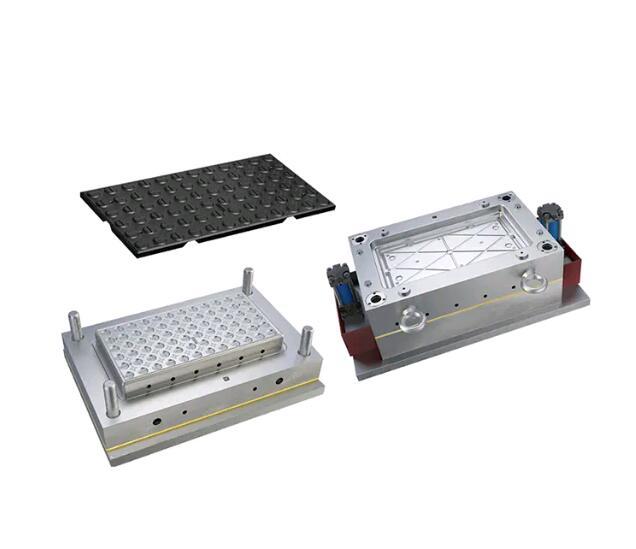SMC Moulds: The Backbone of Modern Composite Manufacturing
SMC molding, which involves the use of a pre-impregnated sheet of resin and reinforcing fibers, offers significant advantages in the manufacturing of parts for automotive, electrical, construction, and consumer goods industries. This article delves into the role and advantages of SMC molds, explaining their importance in the production of lightweight, durable, and high-performance components.
SMC stands for Sheet Molding Compound, a composite material consisting of a resin matrix reinforced with glass fibers, carbon fibers, or other materials. The sheet of SMC material is typically pre-impregnated with the resin, making it easy to mold into various shapes. The molding process involves placing this sheet into a mold cavity, where heat and pressure are applied to cure the resin and form the desired part.
SMC molding is often used to produce parts with complex geometries, high strength-to-weight ratios, and excellent durability. The molds themselves are specifically designed to handle the unique properties of SMC materials, ensuring that parts are produced with precision and quality.
Precision and Quality Control: The primary role of an SMC mold is to ensure that the parts produced have a high degree of precision and meet the required design specifications. The molding process itself involves the compression of the SMC material under heat and pressure, which requires molds that can withstand high temperatures and forces while maintaining their shape. High-quality SMC molds are engineered to produce parts with consistent dimensions, smooth surfaces, and complex features.
Whether it is a large automotive panel or a smaller electrical housing, SMC molds ensure that the components are manufactured with exacting standards. This precision is crucial, especially in industries where safety and functionality are critical, such as automotive or aerospace.

https://www.compositemould.com/product/smc-bmc-mould/smc-flooring-mould2.html
Product Application
construction, sites, water system, telecom and etc
Mould Type
Compression mould
Mould Steel
P20 / S50C / S45
Mould Cavity
Single cavity / Multiple cavities / Multiple cavities with interchangeable inserts
Heating System
Oil heating / Electrical rods heating
Ejection System
Hydraulic eject with air assist / hydraulic pins
Mould Cycle
depends on mould steel, P20 could support around 300 thousand lifespans
Lead Time
50 days
- Art
- Causes
- Crafts
- Dance
- Drinks
- Film
- Fitness
- Food
- Jeux
- Gardening
- Health
- Domicile
- Literature
- Music
- Networking
- Autre
- Party
- Religion
- Shopping
- Sports
- Theater
- Wellness


